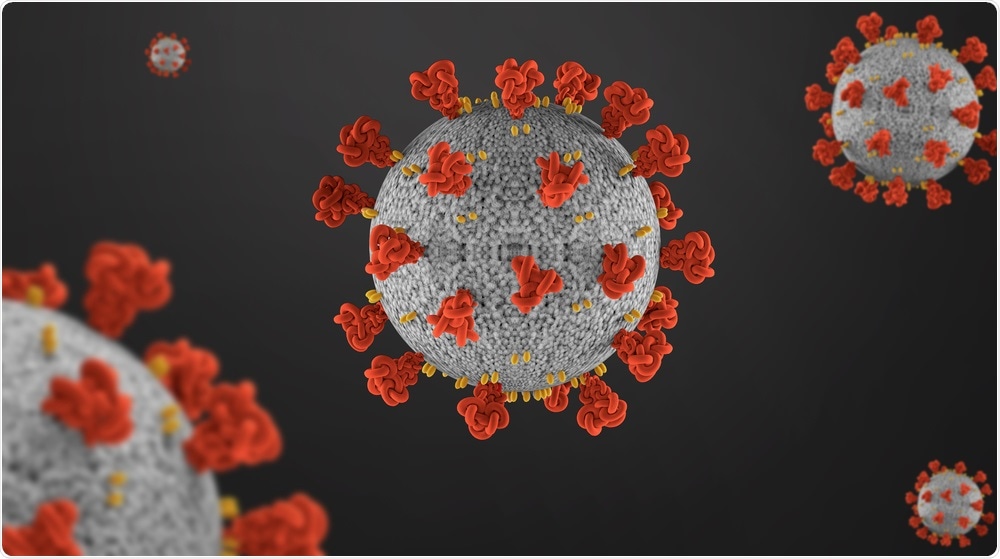Patients infected by COVID-19 suffer cognitive and behavioral problems lasting even 2 months post-hospital release.
Italian scientists have identified possible overhangs from the virus in post-COVID-19 patients who were followed up within eight weeks.
The study presented at the 7th Congress of the European Academy of Neurology (EAN) has found issues with memory, spatial awareness, and information processing lasting even 2 months after patients were discharged from hospital. The study used patients from Italy and tested the neurocognitive abilities of patients alongside MRI tests two months after experiencing COVID-19 symptoms.
Our study has confirmed significant cognitive and behavioral problems are associated with COVID-19 and persist several months after remission of the disease." "A particularly alarming finding is the changes to executive function we found, which can make it difficult for people to concentrate, plan, think flexibly and remember things. These symptoms affected three in 4 younger patients who were of a working age".
Prof. Massimo Filippi, from the Scientific Institute and University Vita-Salute San Raffaele, Milan, Italy
Over half of patients experienced cognitive disturbances. Of that 50%, 16% had issues with working memory, flexible thinking, and information processing, which all encompass cognitive executive functions. 6% of them also experienced visuospatial problems and 25% manifested a combination of all these symptoms. Moreover, the research also found that 20% of patients reported post-traumatic stress disorder (PTSD), with 16% presenting depressive symptoms.

COVID-19. Image Credit: GEMINI PRO STUDIO/Shutterstock.com
Unexpected demographic differences and other mental health consequences
Further analysis also revealed that psychopathological problems were much worse in younger people as the majority of patients aged under 50 experienced issues with executive functions. This was particularly unexpected as older patients are generally thought to be most at risk during this pandemic. However, this finding demonstrates that the actual symptomatic profile can vary widely, especially when considering psychopathological issues.
Findings also showed combined effects were frequent among severe cases of infection. This was noticeable as the greater severity of COVID-19 acute respiratory symptoms during hospital admission was associated with low executive function performance.
Additionally, the consideration of temporal scales showed that the same patients over 10 months showed a reduction of cognitive disturbances from 53 to 36%, but a persisting presence of PTSD and depressive symptoms. This is particularly insightful as few studies have been able to follow patients over time.
Further investigations into cognitive and neurological damage of COVID-19
This study provides key findings of the temporal changes in the psychopathological profile of infected patients. More data can further support the findings of the present study, and could also consider whether different treatments or vaccinations affect the patterns of results described in this study.
Larger studies and longer-term follow-up are both needed, but this study suggests that COVID-19 is associated with significant cognitive and psychopathological problems. Appropriate follow-up and treatments are crucial to ensure these previously hospitalized patients are given adequate support to help to alleviate these symptoms."
Dr. Canu, Researcher at the San Raffaele Hospital of Milan
This study is among one of the four scientific presentations on the neurological symptoms of COVID-19, an area of research that is fast emerging, from this week's EAN Congress.
The other studies include the examination of neurological symptom frequency post-hospitalization based on this study, which demonstrated that 90% of patients had post-COVID-19symptoms, and that neurological symptoms form a significant part. Another study from Ukraine has found that 95% of patients showed symptoms of neurocognitive impairment. Finally, the last study presented showed high rates of neuronal damage in post-mortem individuals infected by COVID-19.
Altogether, research efforts have now extended beyond the physical symptoms of COVID-19, and are now examining neurological and cognitive impairments. Forthcoming studies will provide further insight into the full symptomatic range, and whether this changes over time pre-and post-treatment.
Source:
- Cognitive and behavioral features of a cohort of patients in COVID-19 post-acute phase. Presented at the 7th EAN Congress 2021.